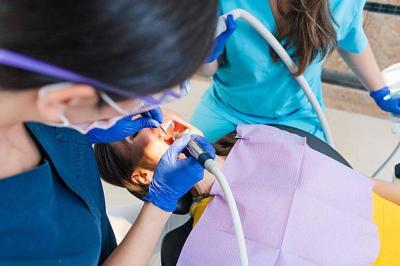Less than a year after its success in animals, the world's first human trial for a drug that can regenerate teeth will begin within a few months. This step paves the way for the drug to be commercially available as early as 2030. The trial, to be conducted at Kyoto University Hospital in Japan, will treat 30 men aged between 30 and 64 who have lost at least one molar. The intravenous treatment will be tested for its effectiveness on human teeth, after having successfully grown new teeth in ferret and rat models without significant side effects.
Lead researcher Katsu Takahashi, head of the Department of Dentistry and Oral Surgery at Kitano Hospital, stated, "While there is currently no treatment that offers a permanent solution, the prospects for tooth growth are high." After the initial phase, set to last 11 months, researchers will test the drug on patients aged between 2 and 7 who have lost at least four teeth due to congenital tooth absence, which is estimated to affect 1% of humans.
The researchers are also exploring the possibility of expanding the trial to include those suffering from partial tooth loss, or individuals who have lost between one and five permanent teeth due to environmental factors. The incidence of this phenomenon varies by country, but it's estimated that about 5% of Americans are missing teeth, with a significantly higher occurrence among the elderly.
The drug itself works by inhibiting the USAG-1 gene protein, which suppresses tooth growth. Researchers explain that preventing the USAG-1 interaction with other proteins encourages the signaling of bone morphogenetic protein (BMP), stimulating the formation of new bone. This has resulted in the emergence of new teeth in the mouths of mice and lab rodents, which share USAG-1 characteristics with humans.
Researchers noted that "the USAG-1 protein has a 97% similarity in amino acids among different animal species, including humans and mice." Molecular biologist and dentist Takahashi has been working on tooth regeneration since 2005 and hopes this treatment will be available not only for congenital cases but for anyone who has lost their teeth at any age. If the trials succeed, it is likely that this unprecedented treatment will be available to patients with any permanently missing teeth within six years.




